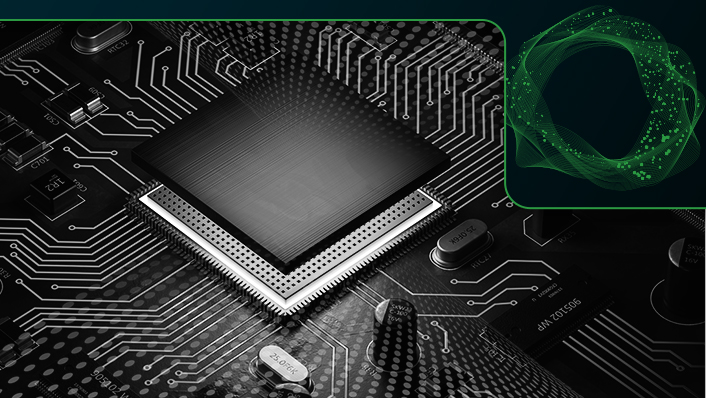

The U.S. Army invests $50 million in Phase II funding for Artificial Intelligence and Machine Learning.
Objective
The Artificial Intelligence and Machine Learning Open Topic focuses on bringing potentially valuable small business innovators to the Army, while expanding the relevance of the Army Small Business Innovation Research Program to vendors that do not traditionally compete for SBIR contracts.
Description
As an Army SBIR Phase I opportunity, vendors can earn a maximum of $150,000 each over a three-month performance period. While the AI/ML Open Topic accepts proposals on any technical challenge requiring an AI/ML application, submissions must fall within one of the six following technology areas:
· Automated Data Labeling: Quickly curate and label data for an AI model.
· Automated Detection and Prevention: Automated systemic-based control that can stop threats and predict the next attack for future prevention.
· Biometrics: Authentication as a form of identification and access control.
· Natural Language Processing: Programming computers to process and analyze natural language data.
· Supply Chain Resilience: Automating risks and vulnerabilities within supply chains to prevent major impacts.
· Synthetic Data Generation: Production data applicable to a given situation that cannot be obtained by direct measurement.
Phase I
Small businesses must deliver concepts showing commercial merit and technical feasibility by the end of the three-month performance period.
Phase I submission materials include:
· Five-page technical volume for down-select.
· Eight-slide commercialization plan and a template provided in the announcement.
· A statement of work outlining intermediate and final anticipated deliverables during the Phase I contract period.
Post-Phase I Deliverables include:
· Small Businesses: A feasibility study demonstrating the technical and commercial practicality of the concept to include an assessment of its technical readiness and potential application to military and commercial markets.
· Technical Point of Contact and Transition Partner: Commitment secured from the TPOC and Transition Partner to associate with potential Phase II contracts.
Phase II
Vendors must produce prototype solutions that demonstrate ease-of-use for Soldiers. Selected businesses will provide designated Army units with their technologies to receive evaluation by Soldiers. Additionally, companies must provide a technology transition and commercialization plan for the Department of Defense and commercial markets.
Phase III
Companies must complete the maturation of their Phase II technologies to TRL 6/7 while producing prototypes that support further development and commercialization. The Army will evaluate each product in a realistic field environment and offer solutions to stakeholders for evaluation. Depending on Soldiers’ field assessments, firms will receive a request to update the previously delivered prototypes to meet final-design configuration.
For more information, and to submit your full proposal package, visit the DSIP Portal.

References:
The U.S. Army invests $50 million in Phase II funding for Artificial Intelligence and Machine Learning.
Objective
The Artificial Intelligence and Machine Learning Open Topic focuses on bringing potentially valuable small business innovators to the Army, while expanding the relevance of the Army Small Business Innovation Research Program to vendors that do not traditionally compete for SBIR contracts.
Description
As an Army SBIR Phase I opportunity, vendors can earn a maximum of $150,000 each over a three-month performance period. While the AI/ML Open Topic accepts proposals on any technical challenge requiring an AI/ML application, submissions must fall within one of the six following technology areas:
· Automated Data Labeling: Quickly curate and label data for an AI model.
· Automated Detection and Prevention: Automated systemic-based control that can stop threats and predict the next attack for future prevention.
· Biometrics: Authentication as a form of identification and access control.
· Natural Language Processing: Programming computers to process and analyze natural language data.
· Supply Chain Resilience: Automating risks and vulnerabilities within supply chains to prevent major impacts.
· Synthetic Data Generation: Production data applicable to a given situation that cannot be obtained by direct measurement.
Phase I
Small businesses must deliver concepts showing commercial merit and technical feasibility by the end of the three-month performance period.
Phase I submission materials include:
· Five-page technical volume for down-select.
· Eight-slide commercialization plan and a template provided in the announcement.
· A statement of work outlining intermediate and final anticipated deliverables during the Phase I contract period.
Post-Phase I Deliverables include:
· Small Businesses: A feasibility study demonstrating the technical and commercial practicality of the concept to include an assessment of its technical readiness and potential application to military and commercial markets.
· Technical Point of Contact and Transition Partner: Commitment secured from the TPOC and Transition Partner to associate with potential Phase II contracts.
Phase II
Vendors must produce prototype solutions that demonstrate ease-of-use for Soldiers. Selected businesses will provide designated Army units with their technologies to receive evaluation by Soldiers. Additionally, companies must provide a technology transition and commercialization plan for the Department of Defense and commercial markets.
Phase III
Companies must complete the maturation of their Phase II technologies to TRL 6/7 while producing prototypes that support further development and commercialization. The Army will evaluate each product in a realistic field environment and offer solutions to stakeholders for evaluation. Depending on Soldiers’ field assessments, firms will receive a request to update the previously delivered prototypes to meet final-design configuration.
For more information, and to submit your full proposal package, visit the DSIP Portal.
References:
